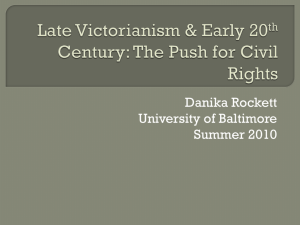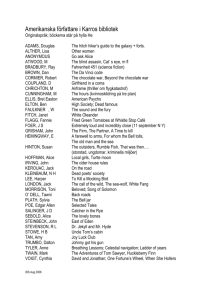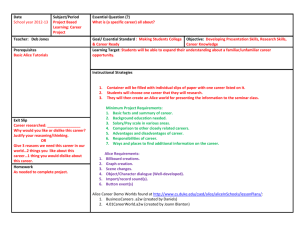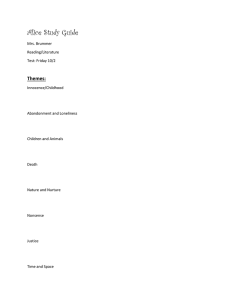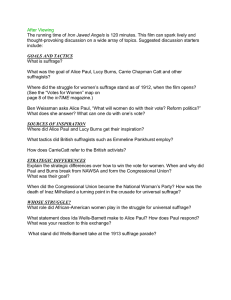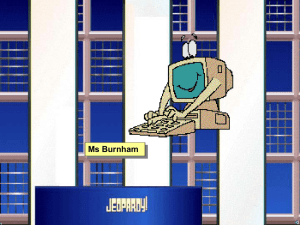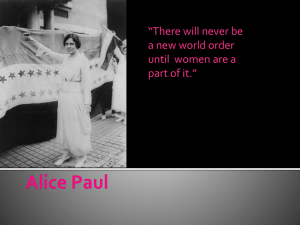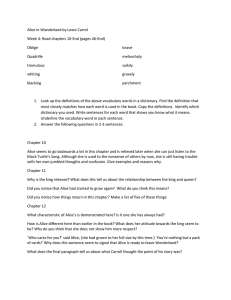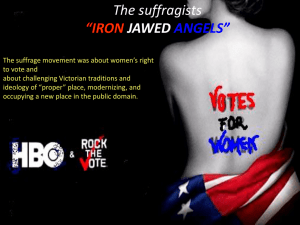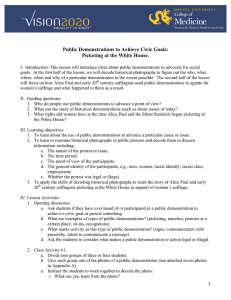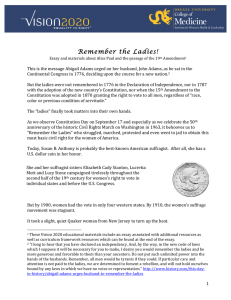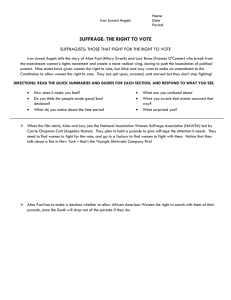Iron Jawed Angels Summary
advertisement
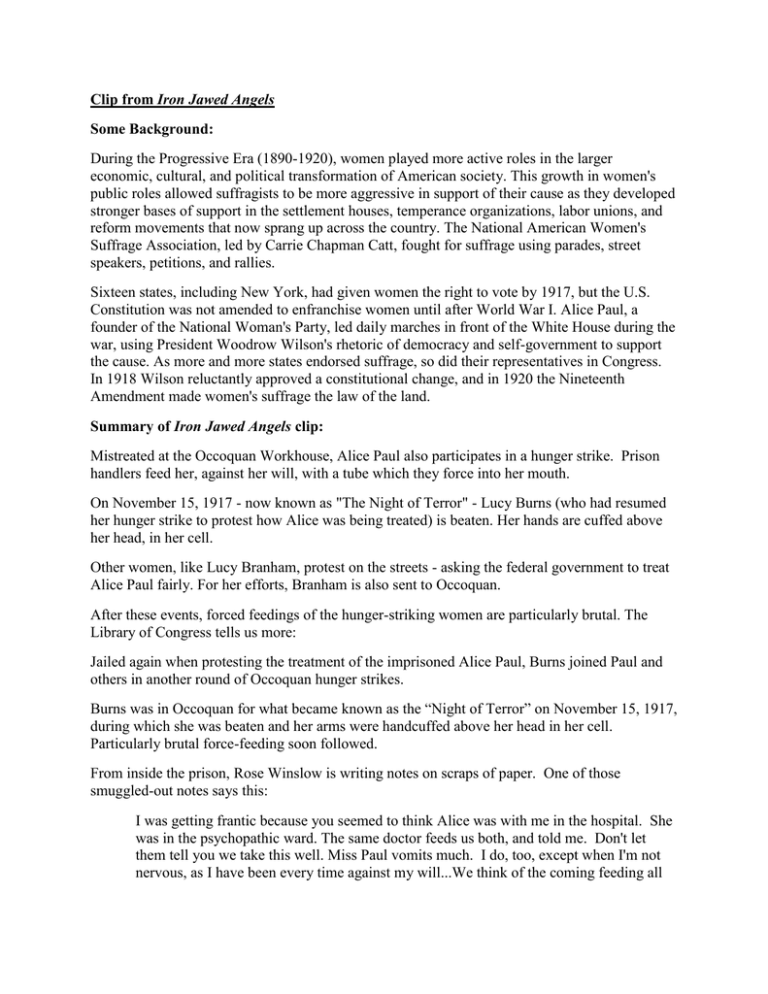
Clip from Iron Jawed Angels Some Background: During the Progressive Era (1890-1920), women played more active roles in the larger economic, cultural, and political transformation of American society. This growth in women's public roles allowed suffragists to be more aggressive in support of their cause as they developed stronger bases of support in the settlement houses, temperance organizations, labor unions, and reform movements that now sprang up across the country. The National American Women's Suffrage Association, led by Carrie Chapman Catt, fought for suffrage using parades, street speakers, petitions, and rallies. Sixteen states, including New York, had given women the right to vote by 1917, but the U.S. Constitution was not amended to enfranchise women until after World War I. Alice Paul, a founder of the National Woman's Party, led daily marches in front of the White House during the war, using President Woodrow Wilson's rhetoric of democracy and self-government to support the cause. As more and more states endorsed suffrage, so did their representatives in Congress. In 1918 Wilson reluctantly approved a constitutional change, and in 1920 the Nineteenth Amendment made women's suffrage the law of the land. Summary of Iron Jawed Angels clip: Mistreated at the Occoquan Workhouse, Alice Paul also participates in a hunger strike. Prison handlers feed her, against her will, with a tube which they force into her mouth. On November 15, 1917 - now known as "The Night of Terror" - Lucy Burns (who had resumed her hunger strike to protest how Alice was being treated) is beaten. Her hands are cuffed above her head, in her cell. Other women, like Lucy Branham, protest on the streets - asking the federal government to treat Alice Paul fairly. For her efforts, Branham is also sent to Occoquan. After these events, forced feedings of the hunger-striking women are particularly brutal. The Library of Congress tells us more: Jailed again when protesting the treatment of the imprisoned Alice Paul, Burns joined Paul and others in another round of Occoquan hunger strikes. Burns was in Occoquan for what became known as the “Night of Terror” on November 15, 1917, during which she was beaten and her arms were handcuffed above her head in her cell. Particularly brutal force-feeding soon followed. From inside the prison, Rose Winslow is writing notes on scraps of paper. One of those smuggled-out notes says this: I was getting frantic because you seemed to think Alice was with me in the hospital. She was in the psychopathic ward. The same doctor feeds us both, and told me. Don't let them tell you we take this well. Miss Paul vomits much. I do, too, except when I'm not nervous, as I have been every time against my will...We think of the coming feeding all day. It is horrible. (Rose Winslow, quoted by Doris Stevens in Jailed for Freedom, page 190.) The cruelty motivated the activists to work even harder, after they were released.
